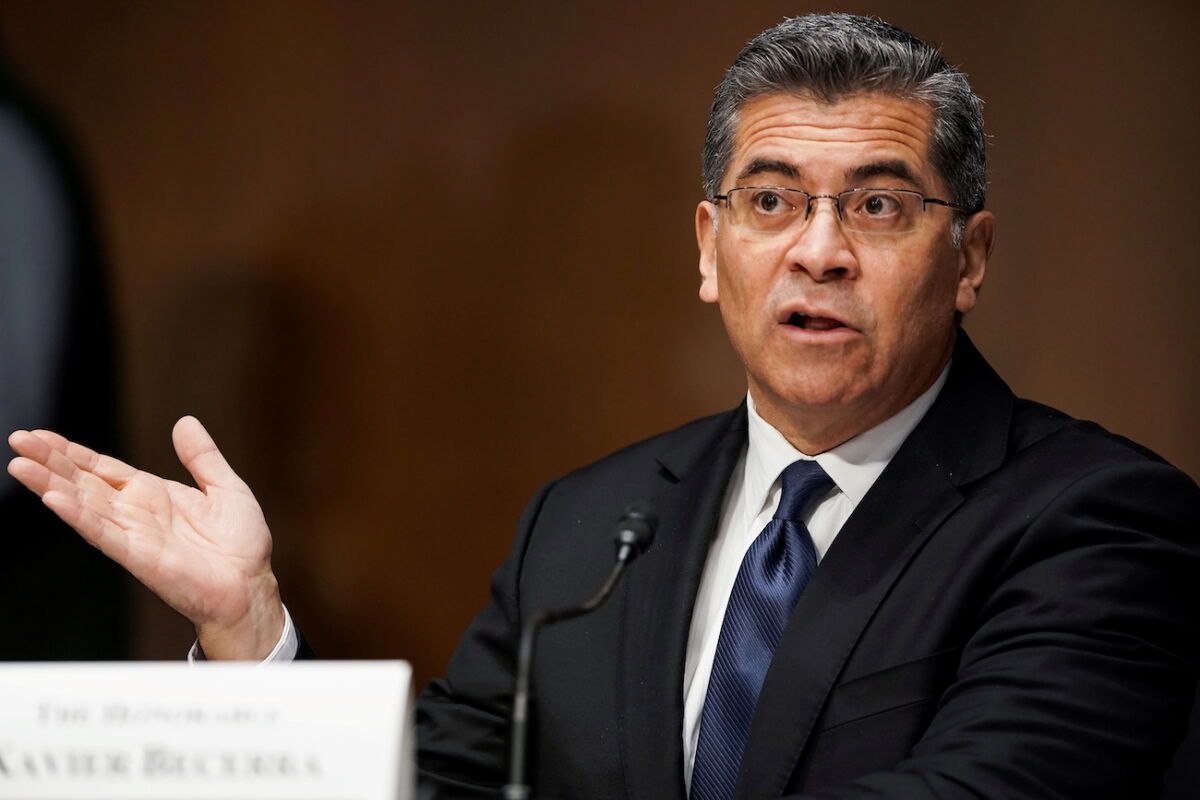Federally funded health programs will undergo a major philosophical shift in 2024, moving from an illness-care strategy to providing wellness care, according to U.S. Secretary of Health and Human Services Xavier Becerra.
The secretary touted the change while presenting President Joe Biden’s $1.8 trillion HHS budget proposal to the House Ways and Means Committee on March 28.
“An illness-care system leaves our most vulnerable families behind. A wellness care system invests in providing the full spectrum of health care to all Americans,” Becerra said.
Illness care, or sick care, is based on treating disease—whereas wellness care aims to maintain good health by providing things like preventative treatments, regular physical exams, cancer screenings, and the promotion of healthful habits.

“Illness care allows the price of prescription drugs to skyrocket. Wellness care starts by prescribing fruits, vegetables, and exercise. It treats food as medicine,” Becerra said.
He said, “Illness care requires you to get a referral by your family physician to see a specialist for mental health services. Wellness care lets you get mental health care the minute you walk through the door of your family physician’s office.
“Illness care forces hardworking Americans to deplete their life savings to get the long-term care that they need,” Becerra said, whereas wellness care aims to keep older adults and Americans with disabilities at home and in their communities.
Major Initiatives
Wellness initiatives in the 2024 spending plan include $30 billion to prepare for the next pandemic or other public health crisis, including replenishing the nation’s strategic national stockpile of medical supplies and equipment, Becerra said.
The plan also calls for boosting the behavioral health workforce with the goal of adding the capacity to receive an additional 6 million calls to 988, the National Suicide Prevention Lifeline.
Other initiatives would add Medicaid coverage for 2 million more adults, make expanded Medicaid postpartum care permanent, provide an additional $600 billion for child care and preschool programs, and $150 billion to increase Medicaid home and community-based services.
Questions About Medicare
The president’s budget proposal seeks $144 billion in discretionary spending for 2024, an increase of 11.5 percent from the amount approved for 2023.
The vast majority of the nation’s health care spending, $1.7 trillion is for entitlement programs including Medicare, Medicaid, and health premium tax credits.
More than 65 million Americans are enrolled in Medicare, 84 million in Medicaid, and more than 16 million receive tax credits through the Affordable Care Act.
Republican committee members questioned whether the budget proposal provided accurate information on the effect some provisions would have on senior adults.

Chairman Jason Smith (R-Mo.) said that the Pay-As-You-Go Budget Rule (PAYGO) would require more than $500 million in Medicare cuts to offset prior spending by the Biden administration.
“Why don’t you account for these looming cuts in your budget, and what are you going to do to prevent them from taking place?” Smith asked.
Becerra insisted that the proposed budget would reduce the deficit over the long term without cutting Medicare.
Rep. Vern Buchanan (R-Fla.) stated that the budget would cause an increase of more than 50 percent in premiums paid by beneficiaries for Medicare Advantage plans, affecting 31 million people.
Becerra disputed the claim. “I’m not sure where you got that information, but we are increasing the amount of reimbursement we’re giving to these insurance companies,” he said.
“If insurance companies are claiming that they’re going to have to cut benefits [for Medicare Advantage beneficiaries] it’s because they don’t want to provide them, and they’re more willing to take care of their profits over the beneficiaries.”
From The Epoch Times

